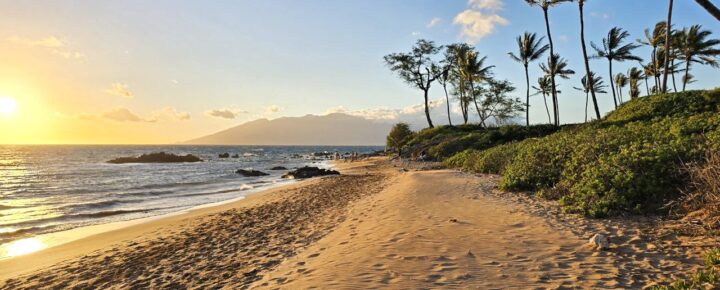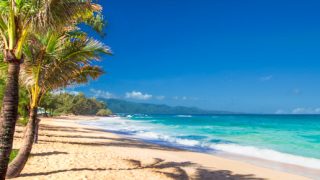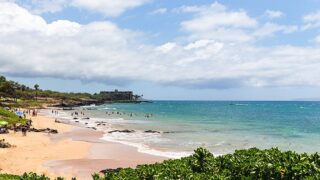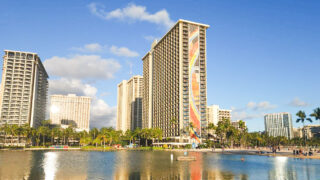To understand what might happen to Maui, it is helpful to look at Florida’s own transformation. Once a haven for retirees from across the United States, Florida’s real estate market catered to wealthier, older buyers who wanted to escape the colder months of their northern home states. The result was a housing market that, while appealing to these snowbirds, became increasingly inaccessible to the working class in many resort areas.
Maui may be on a similar trajectory. Just as Florida became the go-to destination for snowbirds, Maui’s allure could bring retirees and investors flocking to its shores.
The proposed ban on vacation rentals doesn’t change the fact that Maui is a highly desirable place to live, and for those with the financial means, the chance to own a piece of paradise at what could become new, somewhat lower price points remains attractive.
For example, one commenter on Beat of Hawaii noted:
“These condos will become popular with retirees who have fallen in love with Hawaii while on vacation and can afford to retire to paradise. Maui would become the new Florida or snowbird haven.”
Comment from JB on Beat of Hawaii
JB’s insightful comment underscores a growing concern: the policies intended to help locals have the potential to backfire, creating a new class of homeowners who, while not renting, themselves only reside part-time on the island.
Economic and social consequences of investor takeover.
If mainland investors and retirees dominate the Maui market, the effects could ripple through Maui’s economy and society. One of the most immediate impacts would be a potential drop in tax revenue.
Vacation rentals, while controversial, contribute significantly to the county’s budget through transient accommodation taxes. Retirees and second-home owners, on the other hand, wouldn’t generate the same level of revenue. Their spending habits also differ from that of tourists, and they may be less likely to support the local Maui visitor industry in the same way.
Maui’s demographic shift could accelerate as more out-of-state buyers stand poised to purchase these condos. The island could see an increase in part-time residents, particularly during winter, leaving parts of the island vacant during the off-season. This could push local businesses to cater more to seasonal occupants rather than full-time residents.
Most importantly, this shift could seemingly do little to solve Maui’s affordable housing crisis. Instead of vacation rental operators, the island could see condos snapped up by mainland buyers—making it no easier for full-time residents to find affordable places to live.
What are the solutions to Maui’s housing dilemma?
There are no easy answers to Maui’s housing problems, but the conversation around these vacation rental bans has raised important questions. Some argue that more targeted solutions are needed, such as focusing on building affordable housing specifically for full-time residents or providing incentives for developers to focus on homes catering to lower income levels.
Others suggest zoning and tax reforms that could constrain the number of out-of-state buyers or other creative solutions prioritizing local families over retirees and second-home buyers. While challenging to implement, these measures may help Maui avoid becoming another Florida snowbird haven and keep the island’s housing market more accessible for local workers.
Ultimately, Maui remains at a crossroads. The decisions made now will shape the island’s future for decades. Will it become the next Florida, catering to retirees and outside investors, or will leaders find a way to preserve Maui’s unique identity and provide housing solutions for its working residents?
Your poignant comments about what’s happening on Maui.
On unrealistic expectations of affordability:
D.H. said vacation rentals, especially beachfront condos, are inherently unaffordable for local residents:
“You don’t expect to find apartments on beachfront property, as are the majority of the developments on the West side. If property values of these units drop due to the ban, the cost of the maintenance fees won’t drop. Can most families afford these fees on top of either mortgage or rental payments? I don’t think they can.“
Boondoggle by Maui officials:
Phillip spoke to the economic and legal repercussions of the vacation rental ban, calling it a boondoggle created by ill-informed officials:
“Do any of these ‘decision makers’ from the Gov on down have any clue how this would gut Maui and the state in general? This is economic ignorance of the highest order, plus clear 4th amendment issues.“
STR ban will hurt locals more than help:
Patrick observes how the ban could have negative consequences for the very people it aims to help:
“We own a condo on the west side and there is no way a family could live there comfortably. We use local house cleaners, handymen, and contractors. If we have to sell, all that income our service providers rely on will evaporate.“
A Maui rental ban is a start in the right direction:
Mark opined that you have to start somewhere.
“While the STR ban isn’t perfect, it’s a start. Something has to be done to address housing. If it helps even a little bit by discouraging more speculation, it might be the right move. Locals are struggling, and we need solutions, even if they come with tough choices.“
Regular commenter Lani concurred, adding,
“This won’t fix everything, but reducing STRs could still be part of the answer. There needs to be balance, and Maui can’t just cater to tourists at the expense of the people who live and work here. I support trying something, even if it isn’t perfect yet.“
Maui’s government policies are to blame:
James criticizes the local government’s failure to prioritize affordable housing over the years, highlighting frustration with inaction on housing, with the vacation rental ban seen as a scapegoat for more systemic problems:
“The real tragedy is that the proposed ban is a pandering shell game that diverts from the terrible government policies that have made development of low and moderate housing in Hawaii nearly impossible.”
The importance of tourism revenue:
Sheryl raises a vital economic concern: the ban, along with rising fees, will discourage tourism, damaging the industry that sustains many local livelihoods and further impairing residents’ ability to acquire housing.
“These fees and beach fees are another way of sticking it to tourists. Hawaii’s government officials are not only killing the tourist industry, they’re quickly killing local businesses. Very sad indeed.“
Impact on Maui’s economic sustainability:
Kona takes a strong stance against the government’s interference:
“I am watching the likes of a third-world government confiscating legally owned properties. The governor laid this dirty job at the foot of the Maui Planning Department and the mayor. Maui mismanaged the fire, and now they are going after citizens of the United States to take their homes.“
Contradiction in Housing Solutions:
Regular Bryon questions whether the government’s plan will actually deliver results:
“I can’t understand how they think the STR ban will bring prices down so more families can afford homes. Most of the units in the banned area are well over a million dollars. The prices are probably always going to be high. It’s Hawaii.“
Mistrust of outside influences:
Katherine F. expresses frustration with non-local interference:
“A minority of locals claiming to be kanaka are advocating for the overthrow of the U.S. government from Maui. They have called white STR owners slave owners to our faces… They are xenophobic and anti-tourist. Many of them don’t even come from Maui!“
No Long-Term Planning by Maui Government:
Walter argues that the vacation rental issue is a distraction from the real problem:
“Government just focuses on things that benefit business activity and wealth attraction without regard to the workers needed to sustain such activities. It’s the lack of planning by state and local governments across the country that is the main problem.“
A Call for Balance:
Drew808 provides a more culturally nuanced view:
“Hawaii has very different values than the mainland. Combined with a complicated history, it would be best not to take offense at local pushback. Perhaps a little perspective and grace is in order when it comes to locals struggling to live where they were born.”
What do you think – could Maui become a snowbird destination?
Or is there still a chance to shift the balance in favor of its full-time residents? Let us know in the comments below.
Hat tip to commenter JB for inspiring us today.
Get Breaking Hawaii Travel News






Hi, just a quick question. We have traveled to Maui multiple times. Our last trip was canceled due to Covid. We have stayed at Puamana every visit. We are in the beginning stages of planning a trip for May of 2025 and saw that some units in Puamana are again available for rent. So I guess my questions are whether or not visitors are welcome in that area yet? We love Puamana and would like to support the local economy but we also want to be respectful and not intrusive and with Puamana being in the fire zone, we are worried that we may not be welcome. If you have any insight or advice, we would appreciate it.
(Sigh)Study after study shows that when you ban or restrict short term rentals, tourism spend goes Way down and ownership of those formerly short term rentals transfer through property sales to the wealthy who can afford 2nd homes without having to rent them out. The new owners aren’t there all the time (unlike a busy short term rental) and therefore the spend per visitor (and all related tax dollars going to the State, including room taxes, sales taxes, etc) goes WAY down. Maui will see this happen just as Palm Springs, Idyllwild, New York City and other Short Term Rental banning or restricting cities are currently seeing it happen. The Only real solution to the housing crisis is building more affordable units. Nothing more, nothing less.
Wife and I bought a small condo on the windward side of Oahu, one bedroom,
600 sq. ft., after falling in love with Hawaii after visiting the 4 major islands. When we’re not there we were STR it, or manager had staff that she pays to clean, $25-$30, per hour, now Honolulu County is trying to shut STR down and they’ll lose their jobs, and a family wouldn’t fit in our small place let alone afford it, Hawaii is quickly losing its “Aloha”!
I sincerely doubt that Maui will become the new Florida. Just the difference in state taxes is enough to keep retirees away. Florida has no state income tax, what is it in Hawaii? 9% 10%? And then there’s the cost of living in general. How much more does it cost to buy a car in Hawaii and it doesn’t Florida? And then there’s the fact that you can drive in one day from Chicago or Washington DC to Florida where Hawaii requires expensive airline flights.
Florida is filled with Retired people and tourist. Maui is pretty much filled with retired people and tourist. I believe this is what HB is referring to. The only difference is the economic class of the tourist and retirees. Maui is filled with rich ones. Florida is not. But both have many similarities.
We need a lot of new basic housing on Maui… Maybe 5000 simple basic houses. How about 1/2 acre lots. One sq mile is 640 acres or about 1300 home per sq mile. That is about 10 sq mile area or an area of 3 miles by 3 miles. Not a very big area. Make 3or 4 smaller towns? On a 1/2 acre lot you have room for a Ohana unit too. Get Building Maui. Force the Government to do something. STR. are cash cows and we also need jobs!
Stating that Florida is no longer a go to State for retirement is a farce. Unaffordable Florida are the gated communities where the Wealthy live, these exist and don’t take up vast expanses of the State. Most of the State varies depending upon whether or not its proximity to larger Cities or Disney. Those retired people moving to Florida, Most of which are Not Millionaires, seek tax benefits, better weather, beaches, and sunshine. Never will Hawaii be a Florida retirement destination, not even similar. Maybe, possibly, some Wealthy people will purchase a getaway, that’s inevitable. Lowering the cost of STR’S to the point where typical residents can afford, mostly Laughable. That’s Not what any of this is really about. Diverting Attention from what’s really going on is the goal. Keep pressuring the Hotel and Resort Industries!
This is the sanest response that I’ve seen so far. Pointing the finger at mom and pop businesses is absolutely a diversion technique. And so far, the hotel lobby is winning with this smoke and mirror technique. The uber wealthy are making those of us who are not uber wealthy fight amongst ourselves, getting us to do their dirty work for them. To go along with it is beyond sad.
Many can afford Florida, almost no one can afford Maui.
The comments here seem to have veered off-topic into the familiar STR arguments. If I’m not mistaken, the point of this story was about the risk of Maui becoming overrun with part-time snowbirds.
The influx of affluent snowbirds risks further diluting or destroying the local culture, which, for those of us who live here full-time, is the true beauty of Hawaii.
If you’re going to live in Hawaii, learn the customs, culture, and language. Become part of the culture, not contribute to diluting or destroying it.